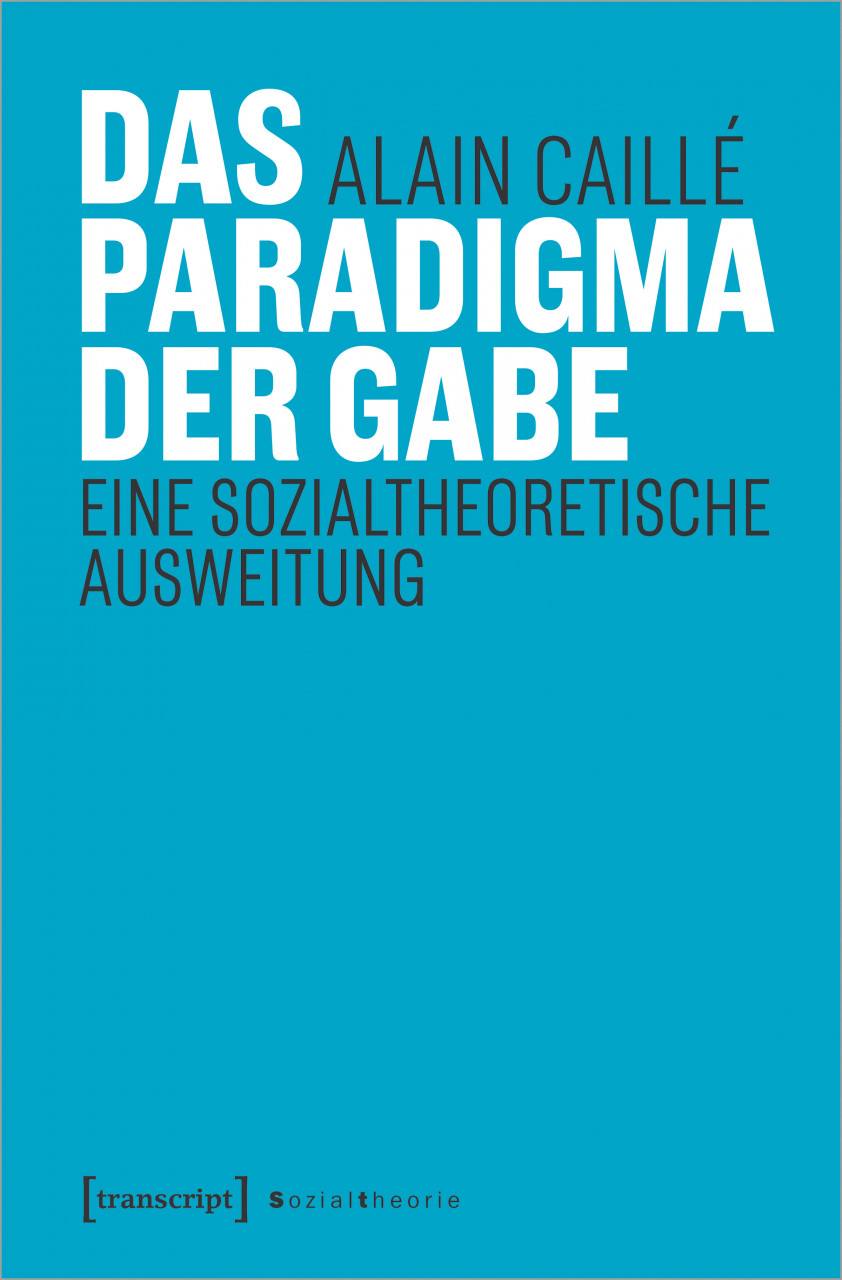New Publication
Alain Caillé: "Das Paradigma der Gabe"
The German translation of Alain Caillé’s 2019 book “Extensions du domaine du don: Demander, donner, recevoir, rendre” has just been published by transcript Verlag under the title “Das Paradigma der Gabe: Eine sozialtheoretische Ausweitung.”
The book contains 320 pages and costs 29.50 euros (print) or 26.90 euros (PDF). It can be ordered here on the transcript Verlag‘s website.
Here is the publisher’s announcement:
“Es gibt keine Gesellschaft ohne Gaben. Nicht Marktprinzipien organisieren soziale Beziehungen, sondern Geben, Nehmen und Erwidern als dreifache Verpflichtung. Im Anschluss an Marcel Mauss legt Alain Caillé einen umfassenden Neuentwurf der Sozialtheorie der Gabe vor. Dazu synthetisiert er die seit rund 40 Jahren vorgenommene Bemühung um ein Gabenparadigma, insbesondere die Arbeiten der französischen MAUSS-Gruppe, die für einen Anti-Utilitarismus in den Sozialwissenschaften plädiert.
Das Ergebnis ist eine allgemeine Theorie des Zusammenlebens, die es ermöglicht, Alternativen zum Neoliberalismus und zu ökonomistischen Visionen menschlicher und nicht-menschlicher Subjekte zu denken. Dabei wird das Potenzial der Gabentheorie und ihrer praktischen Implikationen sichtbar, die neue Perspektiven auf Bereiche wie Ökonomie, Anerkennung, Care, Natur, Konsum, internationale Beziehungen, Herrschaft oder Religion bieten.”
(In English: “There is no society without gifts. It is not market principles that organize social relations, but giving, receiving, and reciprocating as a threefold obligation. Following Marcel Mauss, Alain Caillé presents a comprehensive new draft of the social theory of the gift. To this end, he synthesizes the efforts that have been made for some 40 years to develop a paradigm of the gift, in particular the work of the French MAUSS group, which argues for an anti-utilitarianism in the social sciences.
The result is a general theory of coexistence that makes it possible to think alternatives to neoliberalism and to economistic visions of human and nonhuman subjects. In doing so, the potential of gift theory and its practical implications becomes visible, offering new perspectives on areas such as economy, recognition, care, nature, consumption, international relations, domination, or religion.”)


